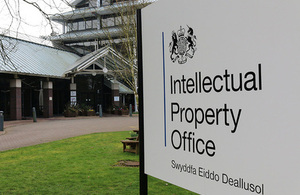Rare painting from 17th century at risk of leaving UK
- The export bar is to allow time for a UK gallery or institution to acquire the painting
- The extremely rare painting depicts a black female sitter alongside her white companion, contributing to the historical debate about race and gender in the 17th century
Valued at £272,800, Allegorical Painting of Two Ladies, English School, dating to around 1650, is at risk of leaving the country unless a UK buyer can be found.
This extremely rare painting shows two women, one black and one white, side by side, presented as companions and equals with similar dress, hair and jewellery. The depiction of a black female sitter in a 1650s painting was highly unusual, particularly a work showing an adult, rather than a child in a position of subservience, inviting important debate about race and gender during the period.
Another remarkable aspect of the painting is the depiction of beauty patches on both the women. Although in vogue at the time, the painting appears to condemn wearing these “spots” via an inscription above the two women which claims wearing beauty patches is a sin of pride, a widespread opinion in the 17th century. This style of work gives the painting an affinity with popular woodcut prints at the time, making it clear the work is allegorical and associating it with satirical verse, pamphlets and sermons.
Arts Minister Lord Parkinson of Whitley Bay said:
This fascinating painting has so much to teach us about England in the 17th century, including in the important areas of race and gender, which rightly continue to attract attention and research today. I hope a gallery or museum in the UK can be found to buy this painting for the nation, so that many more people can be part of the continuing research and discussion into it.
The Minister’s decision follows the advice of the Reviewing Committee on the Export of Works of Art and Objects of Cultural Interest (RCEWA). The Committee agreed that it is an extremely rare and fascinating painting, which has tremendous potential for further research in many subjects. The Committee found the early date of this picture particularly significant, given the subject, as all known comparisons are from much later.
Committee Members Pippa Shirley and Christopher Baker said:
This anonymous painting is a great rarity in British art, as a mid-seventeenth-century work that depicts a black woman and a white woman with equal status. It is not a portrait of real people, as far as we know, but the inscription reveals that it is in fact a sternly moralising picture that condemns the use of cosmetics, and specifically elaborate beauty patches, which were in vogue at the time.
Although not distinguished artistically, its imagery relates in fascinating ways to contemporary stereotypes of women, fashion, and, through the juxtaposition of the figures, race. The fact that it has only recently emerged, and only one other related painting is known so far, and that it could be used to explore important aspects of black culture in seventeenth-century Britain, makes it particularly important that it remains in this country so that its meaning can be widely studied and understood.
Further research could reveal how the picture connects with contemporary print culture and texts, and the contexts and purposes for which it might have been created and displayed.
The Committee made its recommendation on the grounds that the painting’s departure from the UK would be a misfortune because it is of outstanding significance to the study of race and gender in the 17th century.
The decision on the export licence application for the painting will be deferred until 9 March 2022. At the end of the first deferral period owners will have a consideration period of 15 Business Days to consider any offer(s) to purchase the painting at the recommended price of £272,800 (including VAT). The second deferral period will commence following the signing of an Option Agreement and will last for three months.
ENDS
Notes to editors:
- Organisations or individuals interested in purchasing the painting should contact the RCEWA on 0845 300 6200.
- Details of the painting are as follows: British School
Allegorical Painting of Two Ladies wearing Beauty Patches 1650s
Oil on canvas
640 x 750 mm - Provenance: by family descent in the family of Tyrell-Kenyon, Barons Kenyon of Gredington; sold Trevanion, Fine Art and Antiques sale, 23 June 2021, lot 564, sold for £220,000.
- The Reviewing Committee on the Export of Works of Art and Objects of Cultural Interest is an independent body, serviced by the Arts Council, which advises the Secretary of State for Digital, Culture, Media and Sport on whether a cultural object, intended for export, is of national importance under specified criteria.
- Arts Council England is the national development agency for creativity and culture. They invest public money from Government and The National Lottery to help support the sector and to deliver this vision.

